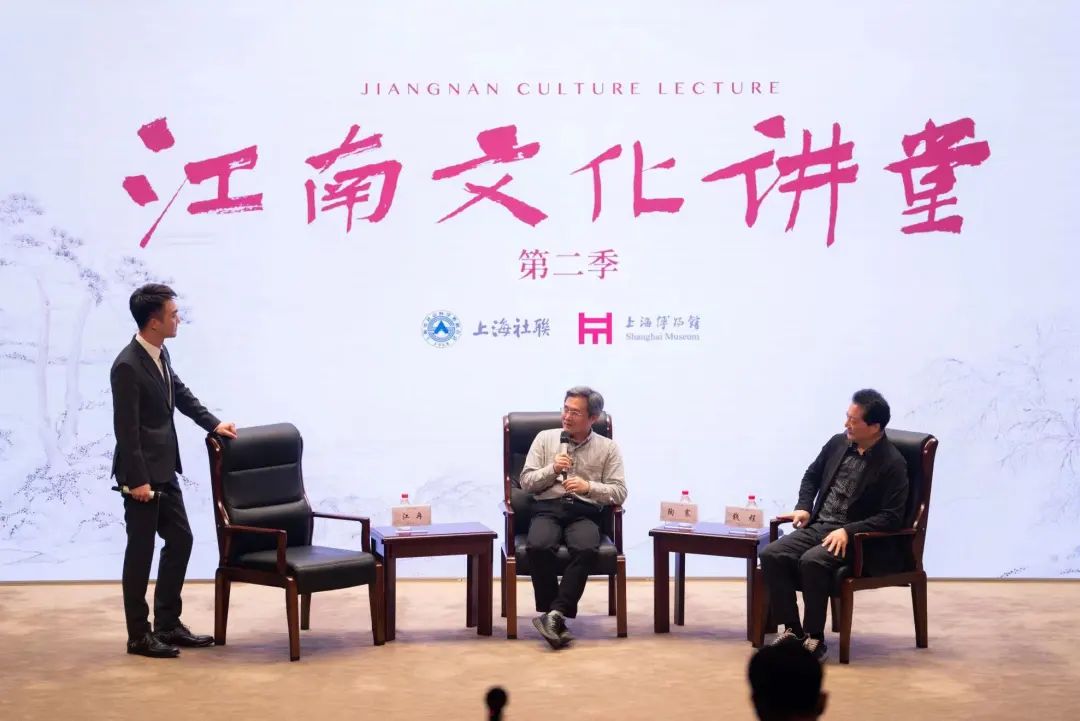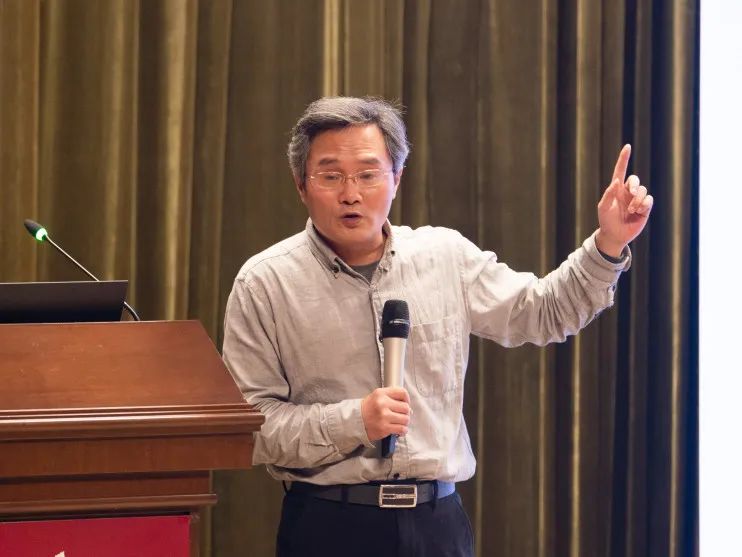Lecture on Jiangnan Culture: The dialects in Jiangnan contribute to the origins of Shanghai people

The 7th Session of Lecture on Jiangnan Culture (Season 2), “The Dialects in Jiangnan” jointly organized by the Shanghai Federation of Social Sciences and the Shanghai Museum, was held at the Shanghai Museum. Tao Huan, Director of Chinese Language Society and Professor of the Department of Chinese Language and Literature of Fudan University; and Qian Cheng, Shanghai Municipal People's Congressman, Director of Chinese Ballad Singers Association and Deputy Director-General of Shanghai Farce Troupe, delivered speeches of Wu Dialect and Jiangnan Culture and Vivid Dialects respectively .

Tao Huan discussed the origins and transformation of the Shanghai dialect in connection with 1) the location of the ancient Wu and Yue states, 2) the language and folk songs prevailing in the Wu state, 3) folk songs prevailing in the Ming and Qing dynasties, 4) the evolution of the name of Shanghai, and 5) the origins of Shanghai people. The Shanghai dialect was formed in the 19th century. Then in the twentieth century before the 1940s, its "Pudong accent" competed with its "Suzhou accent." From the 1940s onward to the 1980s, the dialect remained stable, undergoing little change. Since the 1980s, the period of stability and that of intense change have alternated and various versions of the dialect have coexisted.
Shanghai has grown from a seaside town to a cosmopolis. In the course everything would changed, as its dialect did. We are supposed to embrace such changes. When we visit London, Paris, New York, and Hong Kong, we are always expecting to see something special, unique, peculiar. So what distinguishes Shanghai? The Bund, Huaihai Road, etc., of course. What else? What is unique to Shanghai rather than other places? As the Oriental Pearl, the urban center, and all kinds of buildings can be copied elsewhere. What can represent Shanghai? Is there anything that a visitor finds to be unique to Shanghai at the very moment when he arrives? These are the questions that everyone living in this city shall consider.

Qian Cheng shared his perception of the Shanghai dialect culture with the audience from the perspective of "phonetics." In his thought, the dialect has its own use value and a special cultural value. As the carrier and component of a national culture, it is also the non-renewable intangible cultural resource and an element of multiculturalism.
Local dialects, like local memories, can strengthen one’s identification with his city, and consolidate families and communities. He said that languages are fluid and evolve constantly, but in recent years the Shanghai dialect has been declining faster than usual. Shanghai is an inclusive metropolitan city, where the eastern and western cultures blend effectively, manifesting the city’s liveliness. However, the city’s great development should not be achieved at the expense of the local culture. Dialects should be protected and preserved. Local accents and local memories are vitally important for a city to hold onto its cultural inheritance, work out lifestyles in accordance with its traditions and thus consolidate its bonding with its inhabitants.

